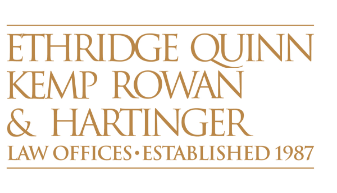“Ensuring the ‘Right to be Heard’ in the Age of COVID-19” by Mimi Teahan
 | |
Ensuring the “Right to Be Heard” in the Age of COVID-19
By: Mimi Teahan, Senior Counsel: Ethridge, Quinn, Kemp, Rowan & Hartinger
I have always wanted to tell other people’s stories. When I was a child, with two parents who were deeply involved in theatre and books, storytelling held a high currency in my home. My father was a professor of literature at a local university. He had a flair for the dramatic. At holiday parties, he performed the entire script of Charles Dickens’ “A Christmas Carol,” assuring each character had a unique face and vocal inflection. For his freshman Shakespeare class, my father entered the classroom costumed as Shylock from “The Merchant of Venice” reciting a monologue. The woods around our home in Appalachia seemed very likely to possess the haunts of the ghost stories that my sister and I read at slumber parties. Mine was a childhood rich in non-material things.
From an early age, I wanted to be part of the narrative. I wanted to be a storyteller. It is the main reason that I went to law school.
Trial work is primarily storytelling. One of the main goal’s of a trial attorney is to clarify our client’s narrative to the court, be it judge or jury, to take the most confusing set of facts imaginable and distill those facts down into a presentation that can be followed, empathized with and absorbed. The Maryland Code of Judicial Ethics contains Rule 2.6 “Ensuring the Right to Be Heard.” This rule outlines a judge’s obligation in court to guarantee “that every person who has a legal interest in a proceeding, or that person’s lawyer, the right to be heard according to the law.” This rule makes paramount the fact that the work we do is not about the lawyers or the judges but about the litigants. Although this rule applies to judges, I have always interpreted it to infer an obligation on counsel as well: our job is to help the hearer receive the facts.
If the events of the past 6 weeks have taught me anything, it is that the work of how we communicate a client’s narrative to the court is changing. In the past week, I have done three hearings and all of them were unique, novel and remote in one way or the other. Often, I was uncomfortable. Each time, I longed to be back in the courtroom. I don’t expect either of these feelings will dissipate any time soon.
But, I remained focused on the fact that my obligation to my client – and my duty to make sure that the client’s case will be heard – was the same regardless of the forum of the hearing or the challenges it presented. Just as stories can be told in songs, poems, plays and novels, we can communicate our clients’ positions in person or remotely, with or without masks covering our faces. The constancy of the obligation is both binding and reassuring . The “new normal” may be unpredictable, but our duties remain the same.

